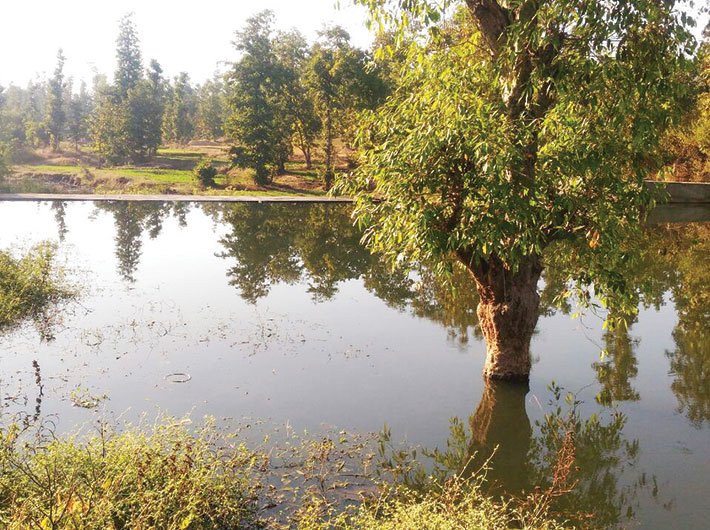In Gujarat, a dedicated authority to facilitate CSR is changing lives in water-scarce tribal regions
Corporations have a critically important role to play in a nation’s roadmap of development, and it is a fundamental, undisputed fact. Development that is not limited to financial growth alone but one with an enhanced vision, leads to an informed, healthy and progressive society. The industry, along with the state, is an equal partner in this endeavour. In India too, like in the rest of the world, public-private partnership is no longer an option to be considered, but a reality that has already been acknowledged and mainstreamed. It is evident to all stakeholders now that neither governments nor business houses can survive, let alone thrive, as isolated entities operating in a vacuum.
Again, this atmosphere of mutual dependence and support provides an ideal breeding ground for the practice of corporate social responsibility (CSR). CSR aims at making business accountable, not only to its direct beneficiaries – the shareholders and investors, but to a wide range of stakeholders. While ‘corporate responsibility’ as a concept has focused primarily on sustainable management of environmental resources and on offering a healthy, safe and active lifestyle to the employees, CSR (in its new avatar under the Companies Act, 2013 and the CSR Rules therein) also expands its target zone to enfold the local community and civil society in general.
CSR is, by no means, an alien concept thrust on the corporate community here. It has been an integral part of India’s business agenda, ever since it emerged in the global arena as an independent state. Veteran members of the industrial community have, in fact, played a pioneering role in forging committed partnerships with local communities that span generations. It is interesting to note that such long-term relationships have more than often turned out to be extremely productive. They have spawned strong local institutions, stable enterprises, and most importantly, educated and informed communities that are capable of sustaining these on their own strength.
Across the country, one can find countless examples of successful CSR initiatives which have changed the lives of lakhs of people for good. Let’s take an example of the tribal-dominated region of Dangs in Gujarat. The area receives heavy rainfall but due to undulating terrains, the water rushes past the district flowing downwards. Large-scale migration due to water scarcity is common in the region during summers. There are about 2,000 old and new check dams in Dangs which were in need of renovation. Gujarat CSR Authority (GCSRA), an initiative of Gujarat government, with the support of leading corporate groups have undertaken three projects for repair of check dams in the district.
The ongoing projects in this water-scarce region will work with farmers seeking to double their income through enhanced ground water availability. At the same time, the repairing of check dams and other ground water recharge measures will augment water storage capacity.
The projects, facilitated by GCSRA, have received a total funding of Rs 1.14 crore for augmenting water harvesting structures and increasing agricultural income. These projects have now been expanded to the districts of Dahod and Chhota Udepur and have resulted in restoring 1.66 lakh cubic metres of water storage. Nearly 880 farmers have directly benefitted from the projects and 142 farmers also received irrigation support. Additional 1,400 acres of farm land could be connected with irrigation from the enhanced water harvesting.
The efforts of GCSRA and its funding partners have borne tremendous results as thousands of acres of farm land could now be connected with irrigation from enhanced water harvesting. It has also doubled the income of hundreds of farmers in the area leading to the cultivation of high-value crops. Besides the traditional model of agri-improvement, GCSRA also developed a few projects to promote and support rural youth in agricultural entrepreneurship. By doing so, GCSRA has been able to provide relief to thousands of farmers of the drought-hit region while also providing them with more avenues for growth.
While officially communities appear to mop up all the benefits, and indeed CSR projects are designed to cater to their requirements and suit their specific conditions, the corporate partners also make substantial gains. And it is not only in kind, that is, sharper brand image and a cleaner/greener reputation, but in cash too. Experts claim that ethical conduct of companies does influence the buying pattern of the customers. Investors in the new age, too, apparently prefer to remain loyal to industries which are known for their ‘ethical concerns’. A successful CSR initiative, therefore, translates into improved financial performance and sometimes even leads to greater productivity.
CSR projects, like the one taken up by GCSRA in Dangs, has the potential to converge the interests of all stakeholders to facilitate replicable and scalable development. It lays the foundation of a wholesome, all-inclusive economic, rather, social system. No wonder the basics of this concept are now firmly rooted in the global business agenda. However, a lot more distance needs to be covered before people can come up with their final verdict on corporate social responsibility.
Tiwari, additional chief secretary rank IAS officer of Gujarat cadre (1985 batch), is MD of GSFC and CEO of Gujarat CSR Authority.
(The article appears in April 15, 2018 edition)
